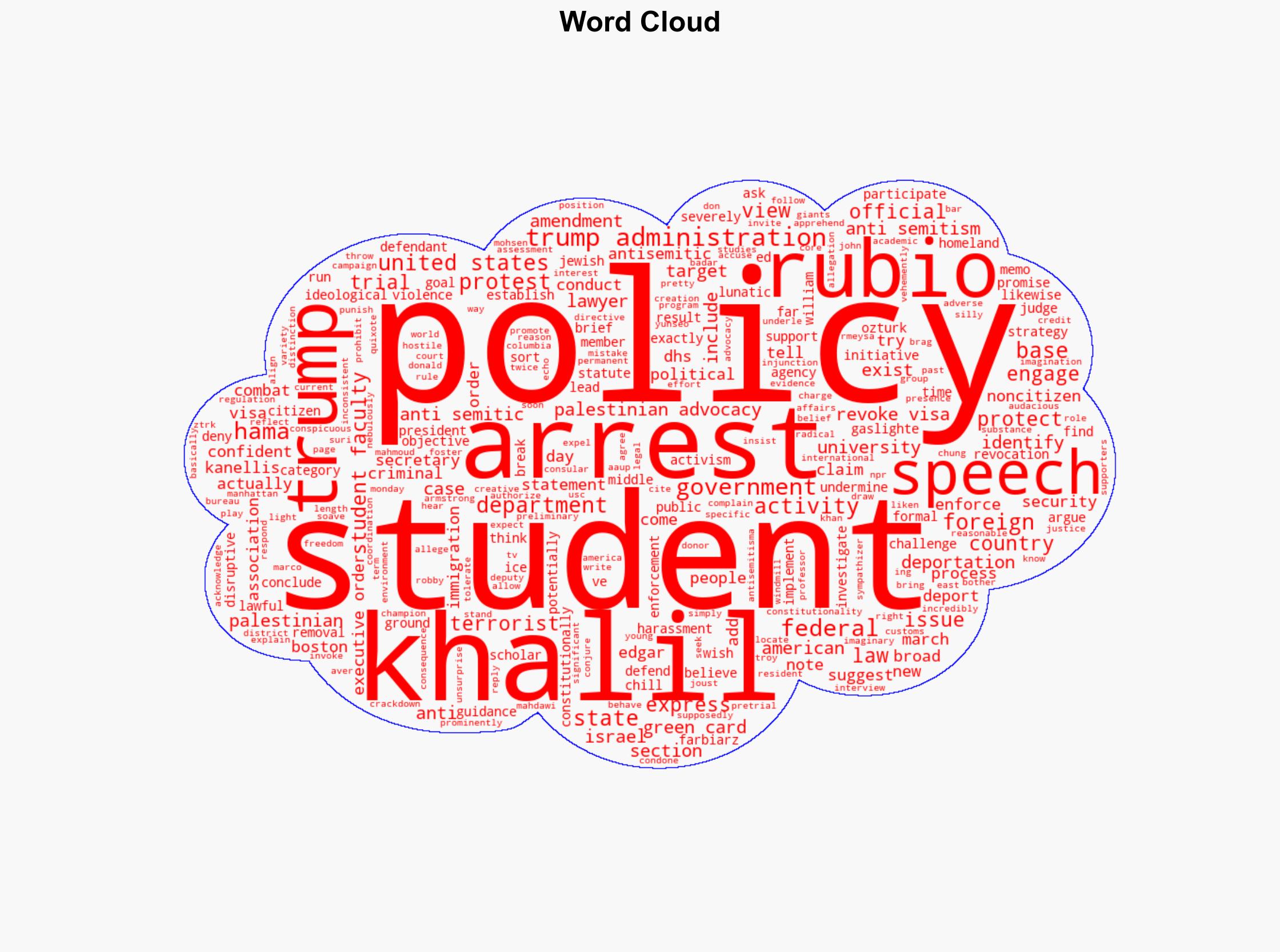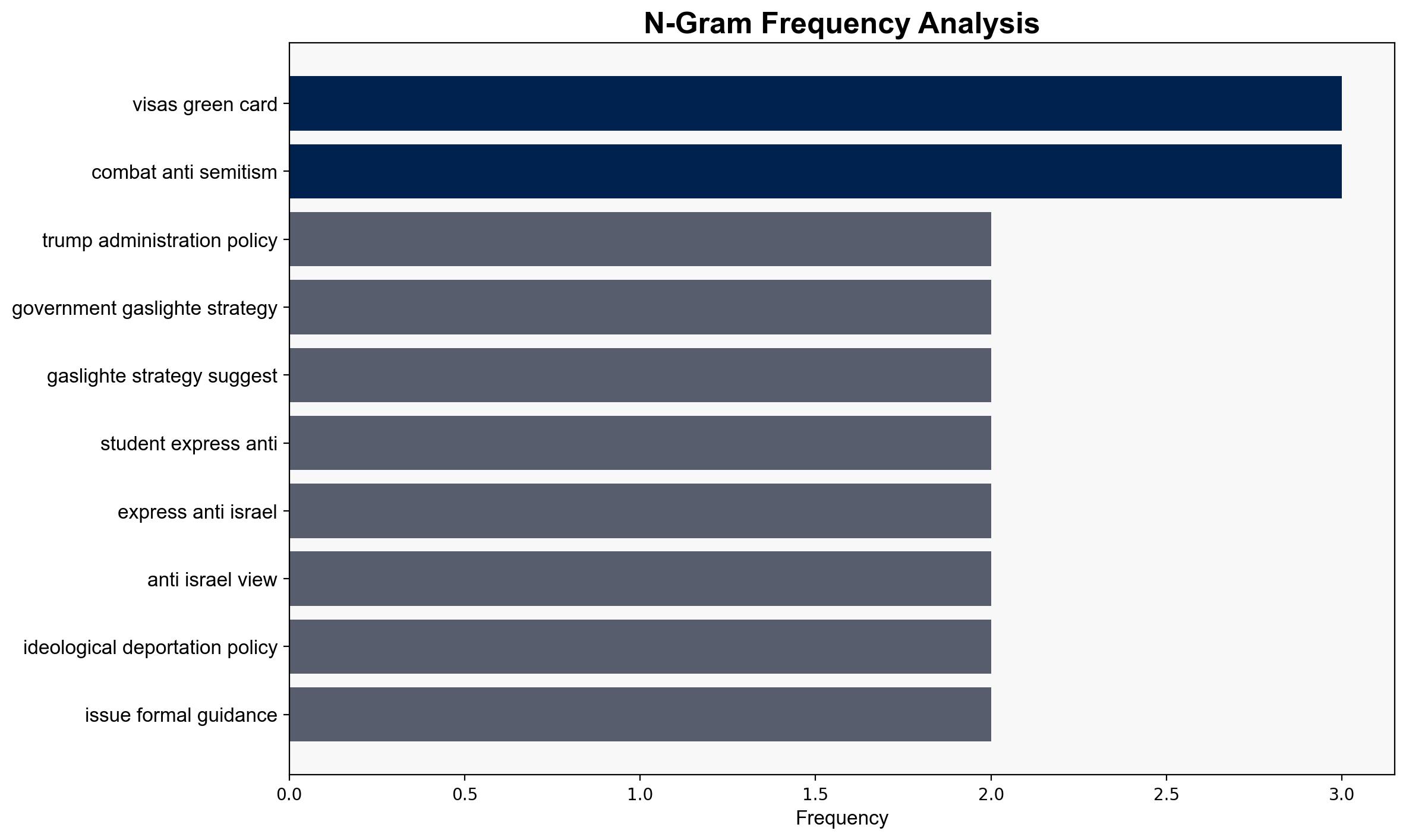Defending Its Speech-Based Deportation Policy the Trump Administration Says ‘No Such Policy Exists’ – Reason
Published on: 2025-07-22
Intelligence Report: Defending Its Speech-Based Deportation Policy the Trump Administration Says ‘No Such Policy Exists’ – Reason
1. BLUF (Bottom Line Up Front)
The Trump Administration is accused of implementing a speech-based deportation policy targeting international students expressing anti-Israel views. Despite denials of such a policy’s existence, evidence suggests a coordinated effort to penalize these expressions, raising constitutional concerns. The strategic recommendation is to monitor legal proceedings and public statements for shifts in policy enforcement and implications for free speech rights.
2. Detailed Analysis
The following structured analytic techniques have been applied to ensure methodological consistency:
ACH 2.0
Analysis suggests the Trump Administration’s denial of a formal policy may be a strategic deflection to mitigate legal and public backlash while continuing enforcement actions under existing immigration laws.
Indicators Development
Monitoring of visa revocations and deportations linked to political activism can provide insights into the operationalization of this alleged policy.
Narrative Pattern Analysis
The narrative of targeting anti-Israel expressions is being used to justify actions against individuals perceived as threats, potentially serving as a recruitment tool for opposition groups.
3. Implications and Strategic Risks
The alleged policy could exacerbate tensions between the U.S. and international academic communities, potentially leading to retaliatory measures from foreign governments. It also risks undermining the U.S.’s global stance on free speech and could fuel anti-American sentiments.
4. Recommendations and Outlook
- Conduct continuous monitoring of legal challenges and policy statements to anticipate shifts in enforcement practices.
- Engage with academic and international communities to mitigate diplomatic fallout and reinforce commitments to free speech.
- Scenario-based projections:
- Best case: Legal clarifications lead to policy adjustments that uphold free speech without compromising national security.
- Worst case: Escalation of deportations triggers international backlash and domestic unrest.
- Most likely: Incremental policy enforcement continues under the guise of national security, with ongoing legal challenges.
5. Key Individuals and Entities
Mahmoud Khalil, Rmeysa Ztrk, Mohsen Mahdawi, Yunseo Chung, Badar Khan Suri
6. Thematic Tags
national security threats, free speech, immigration policy, legal challenges




